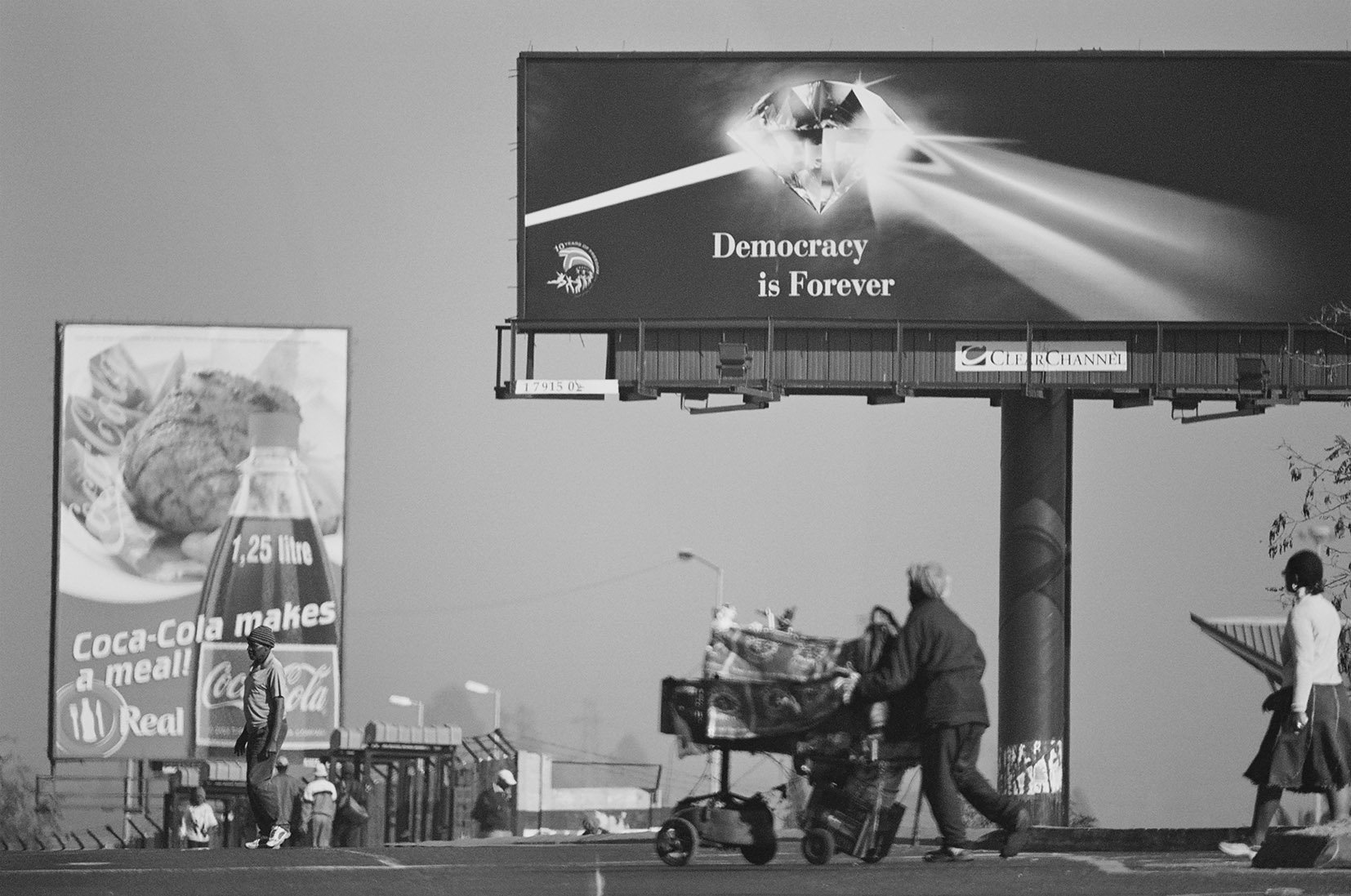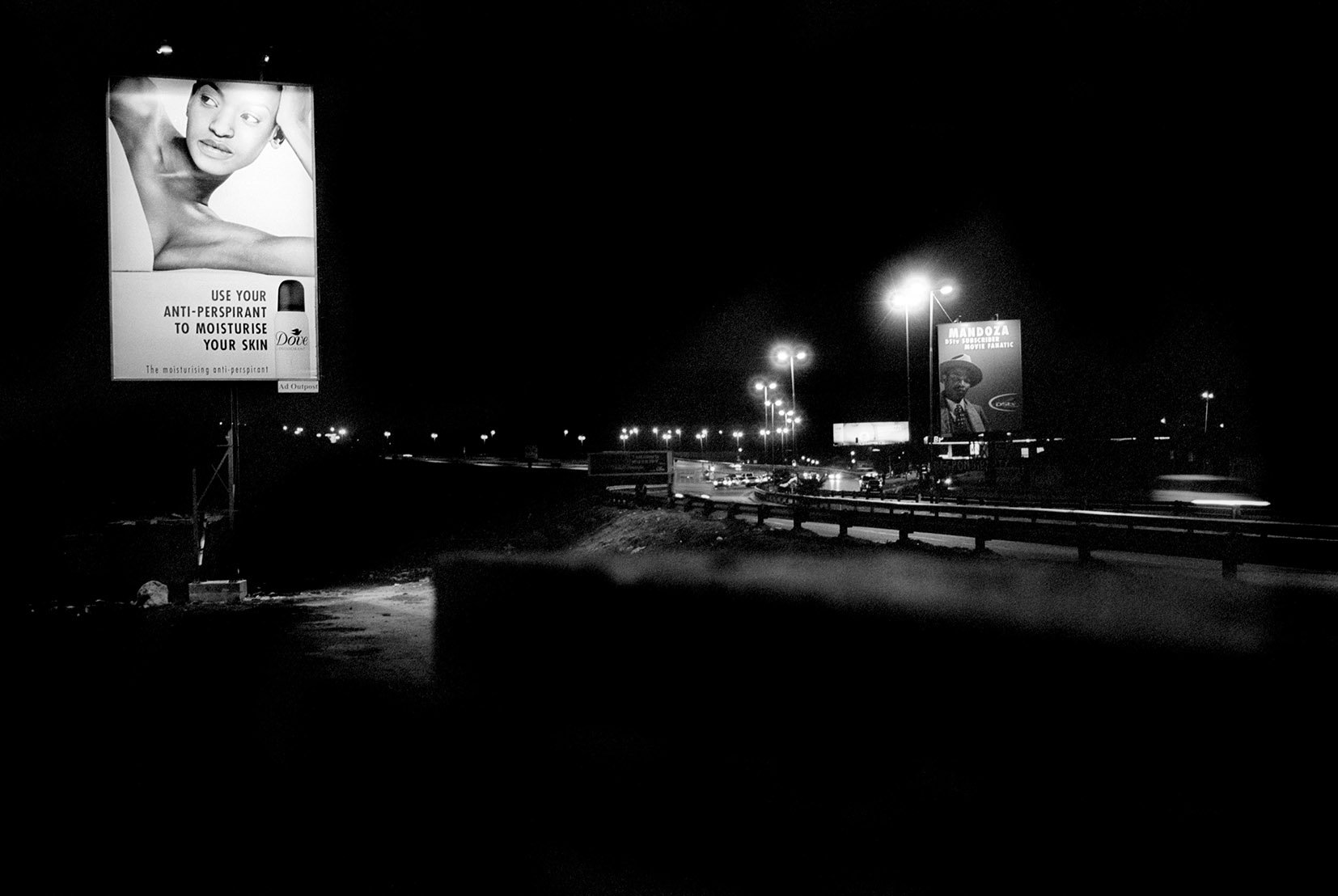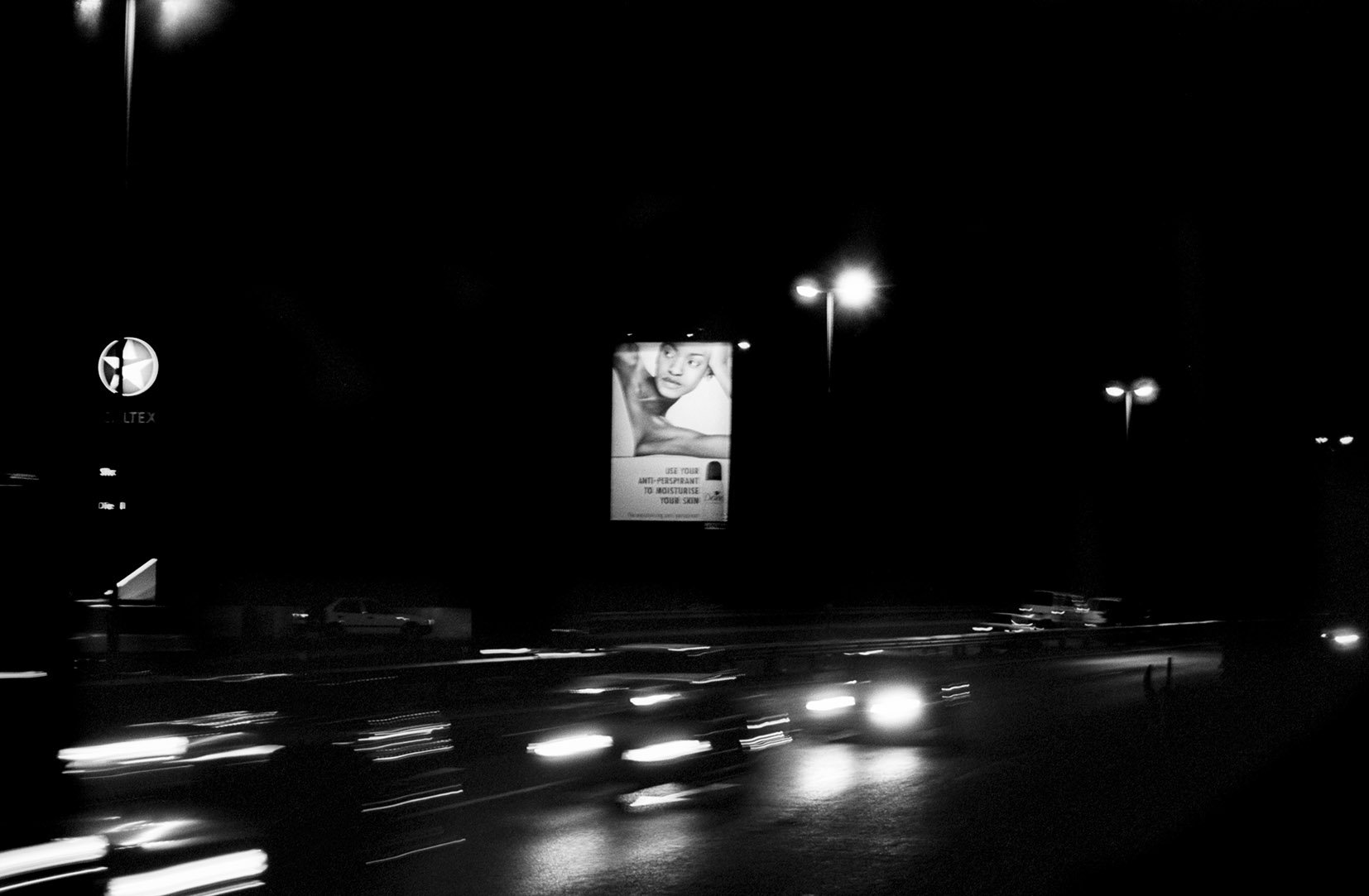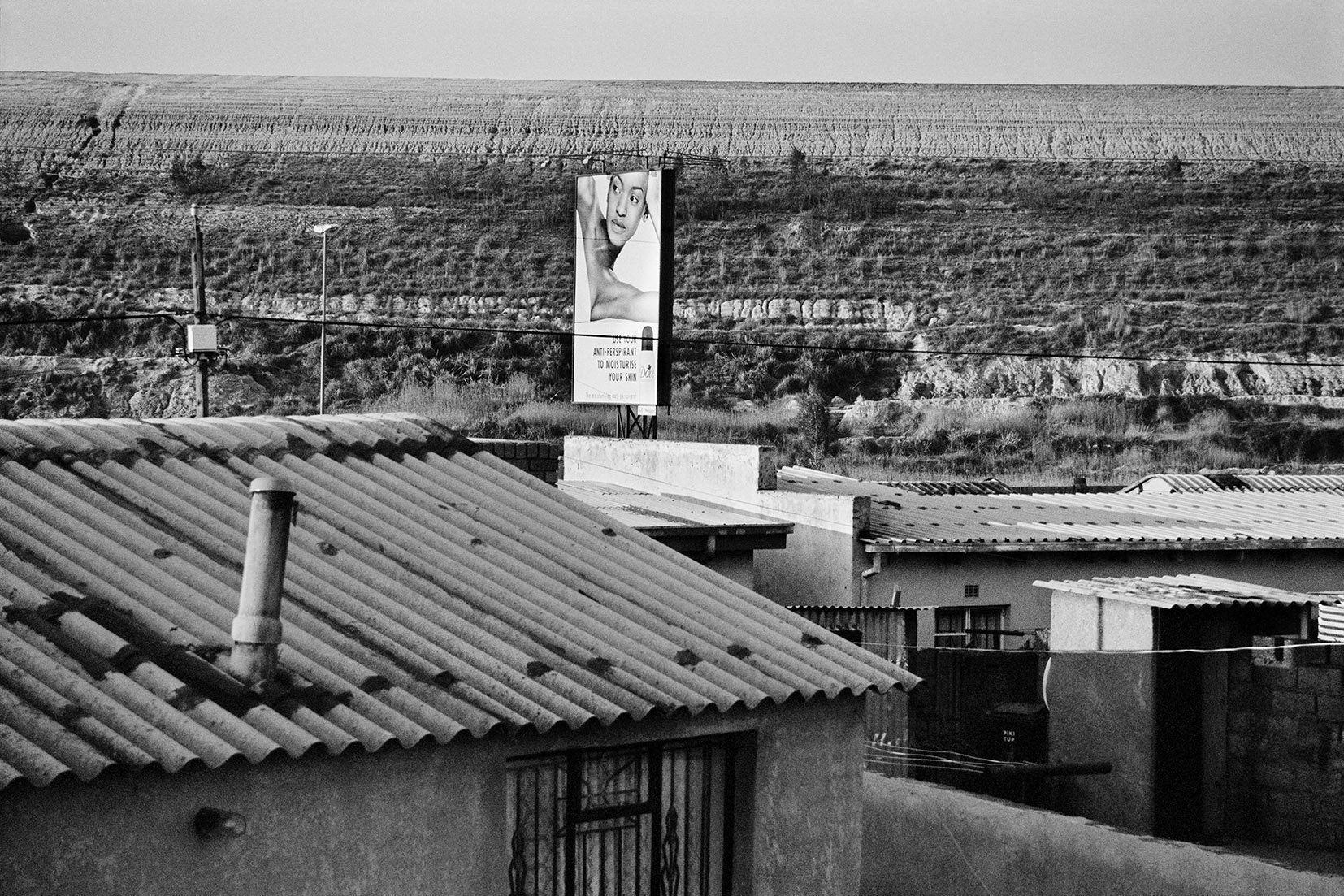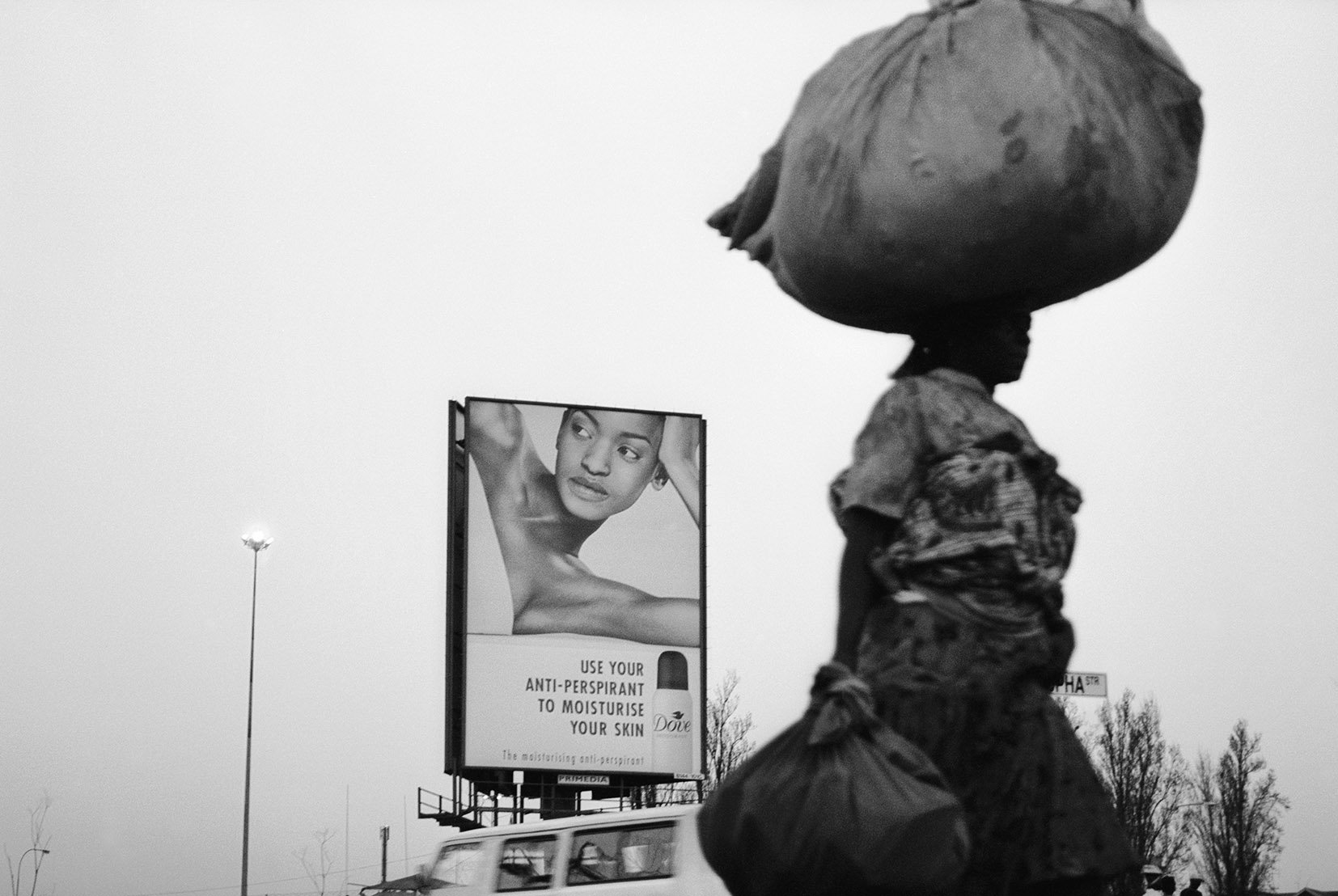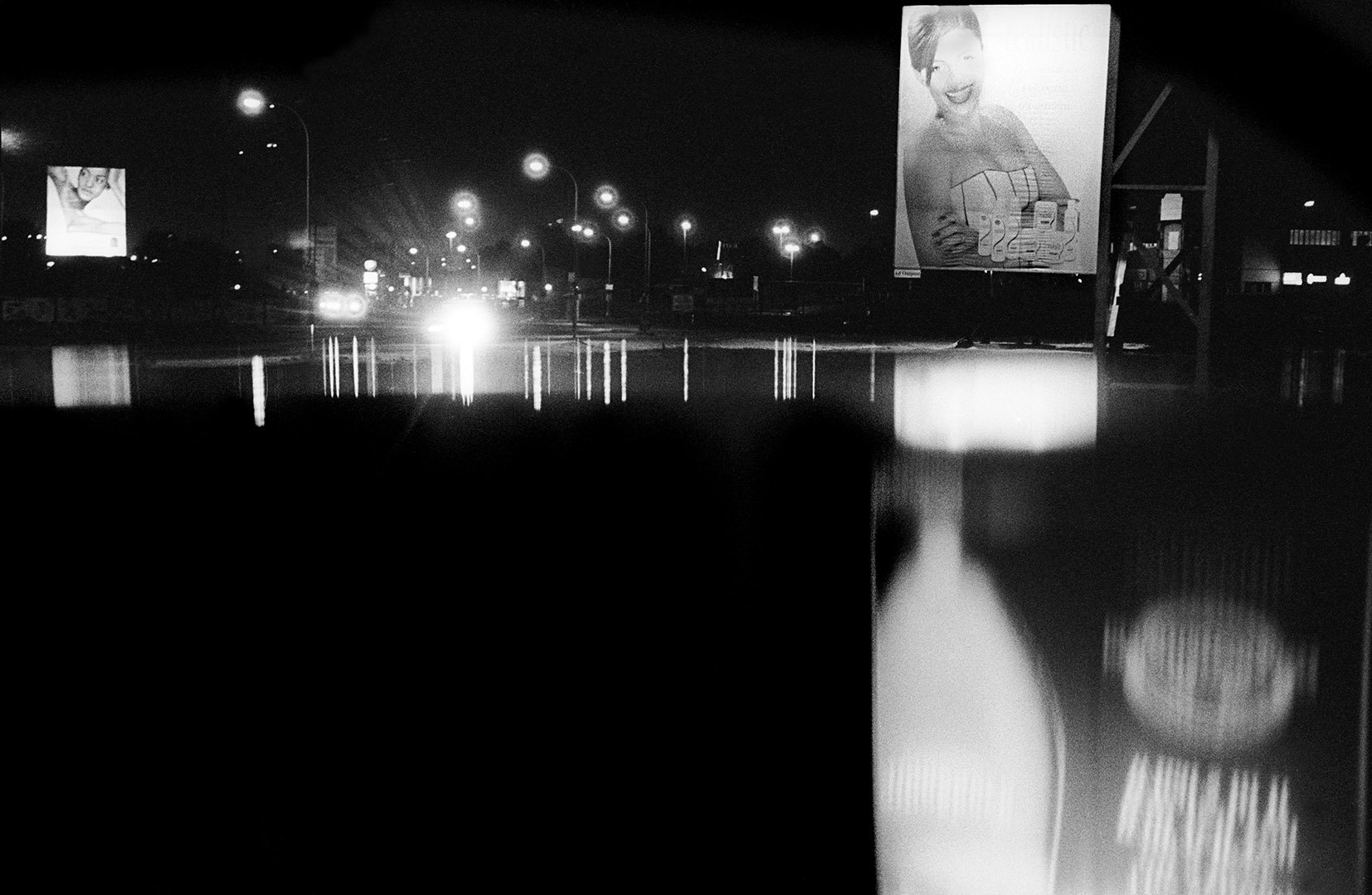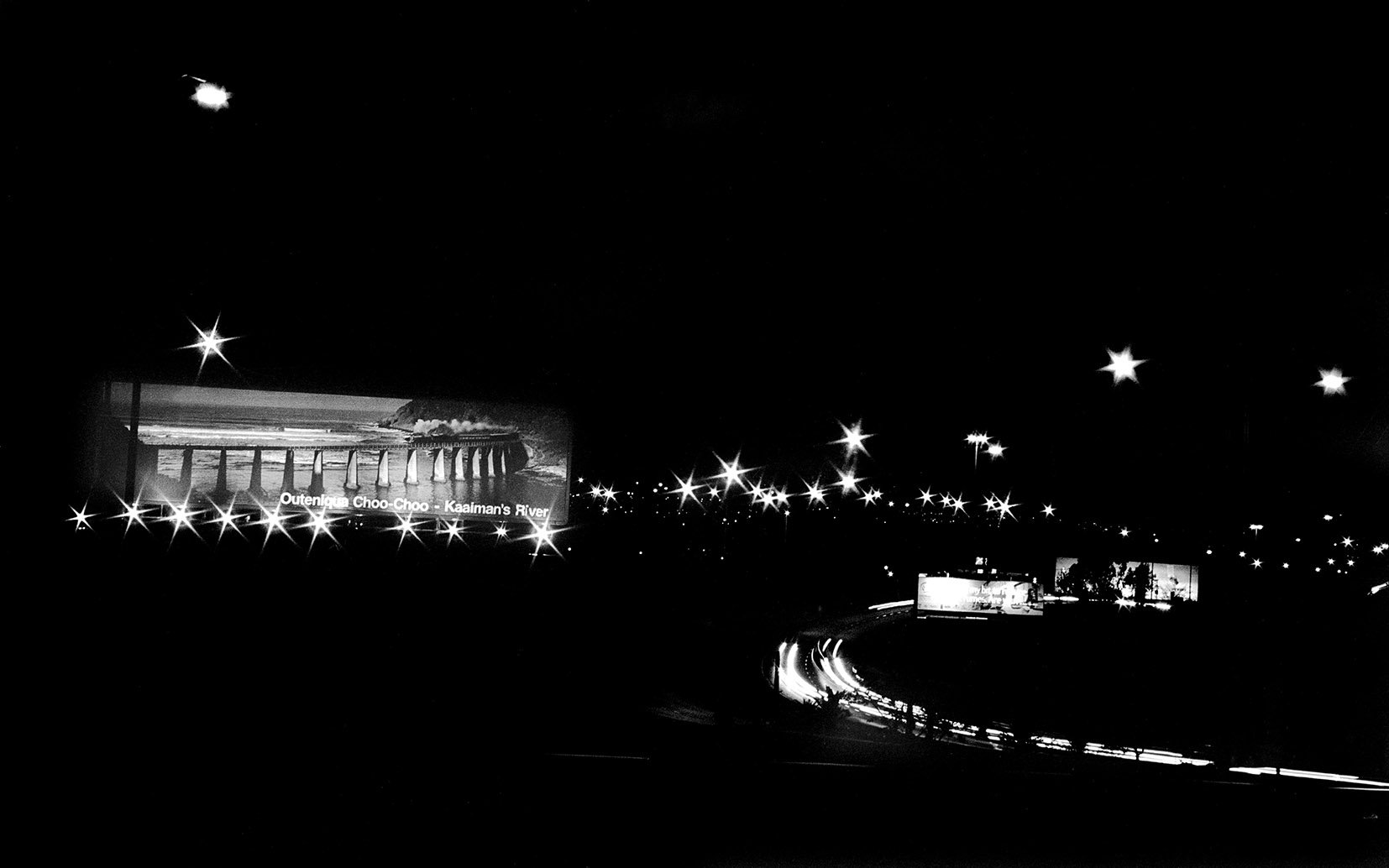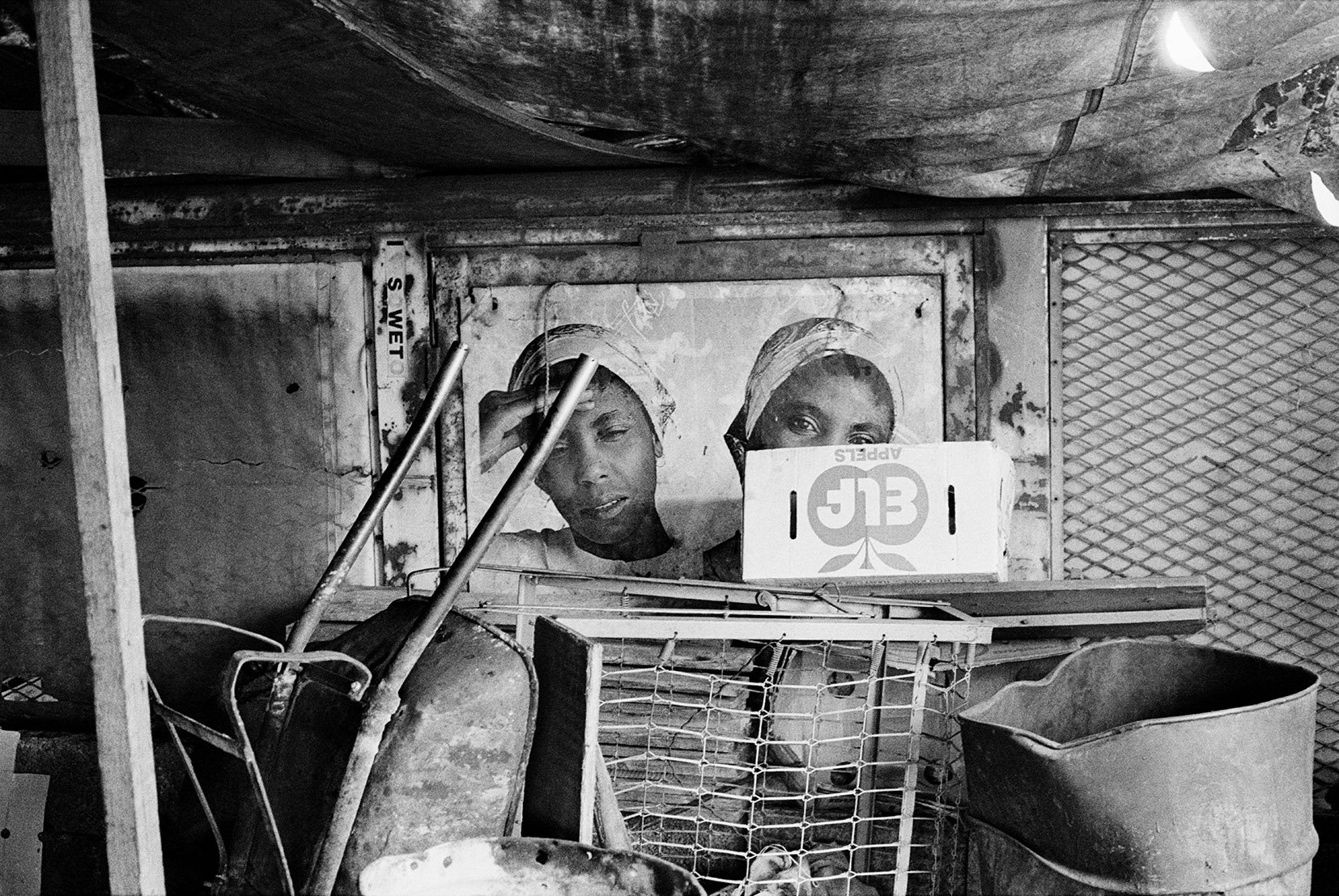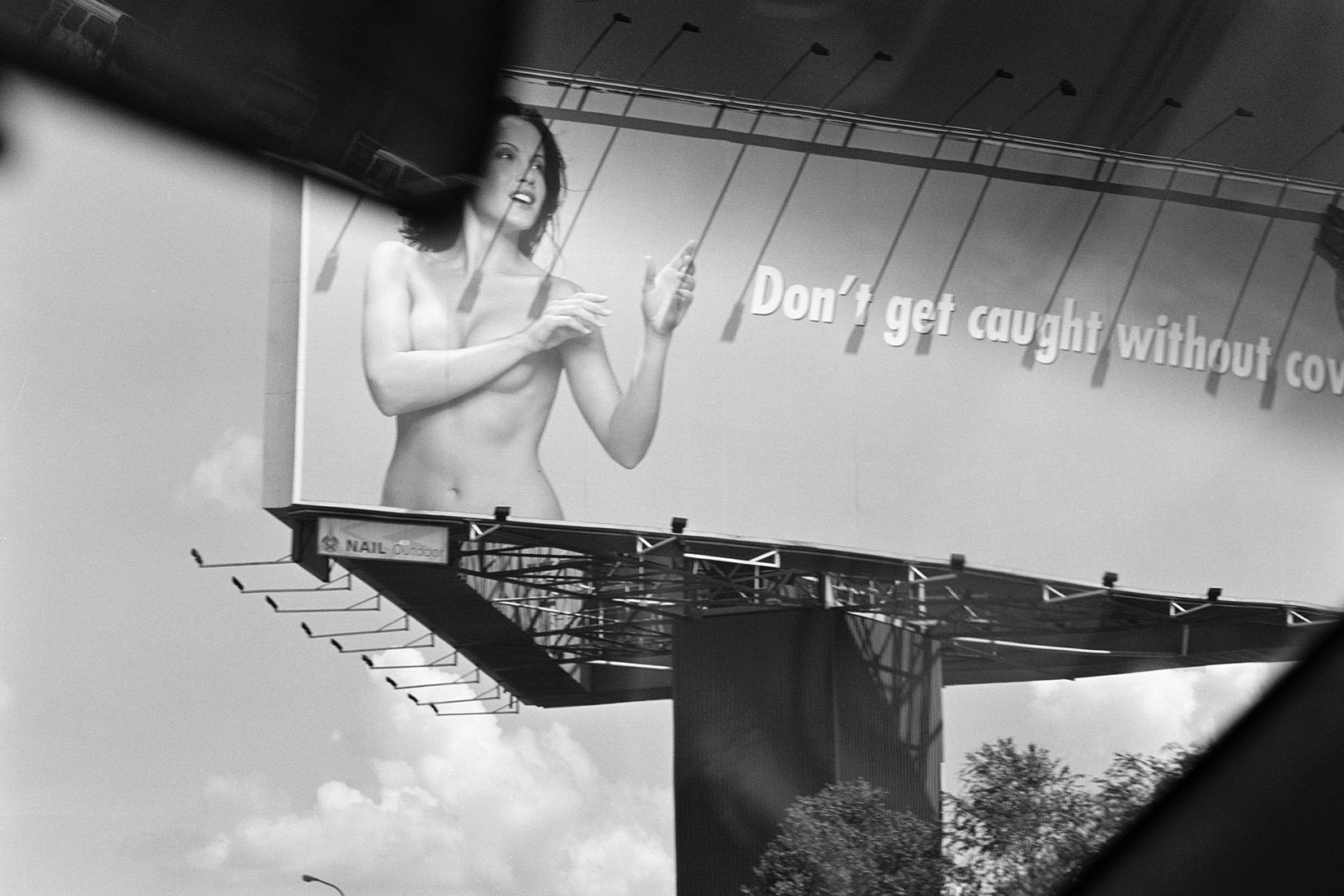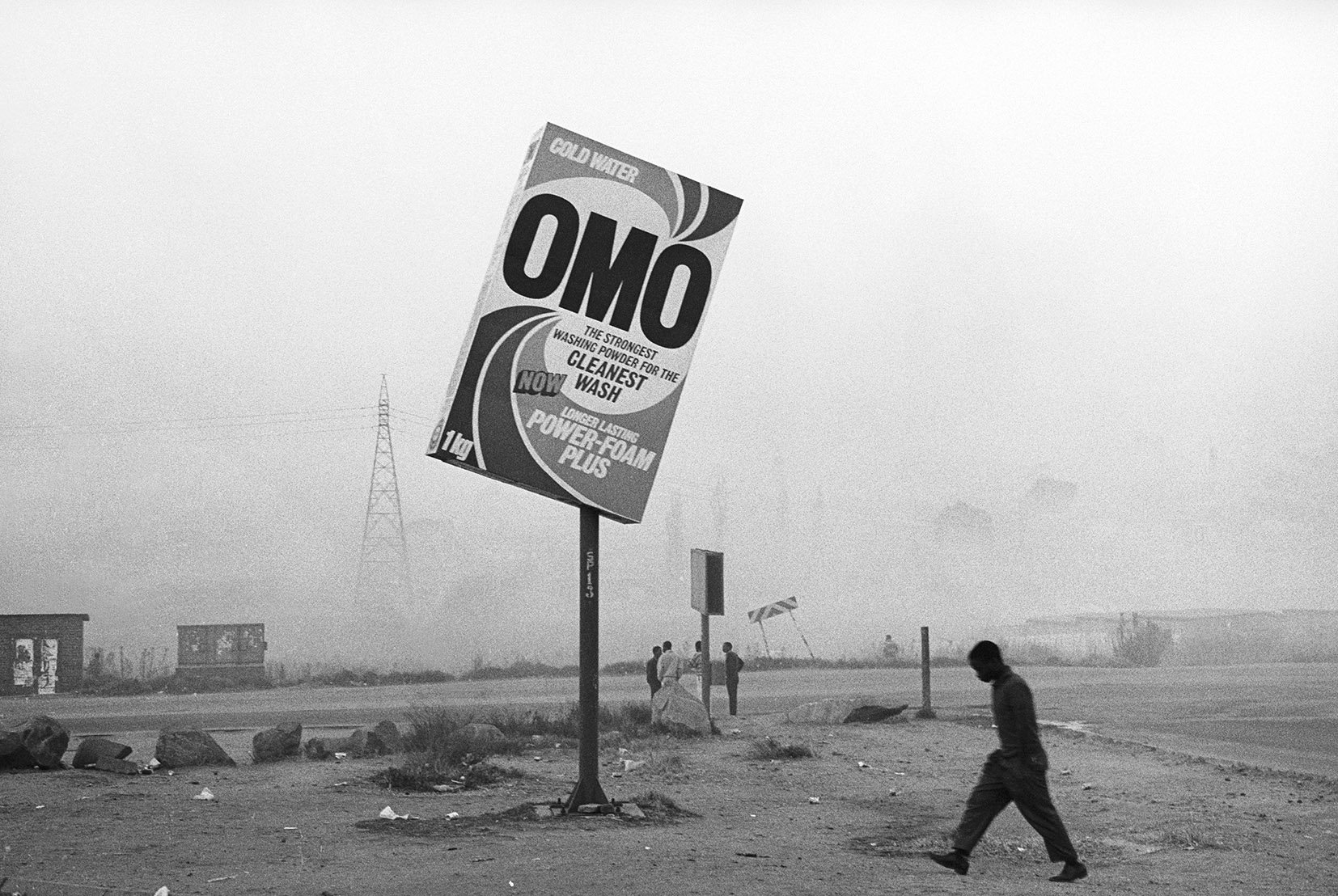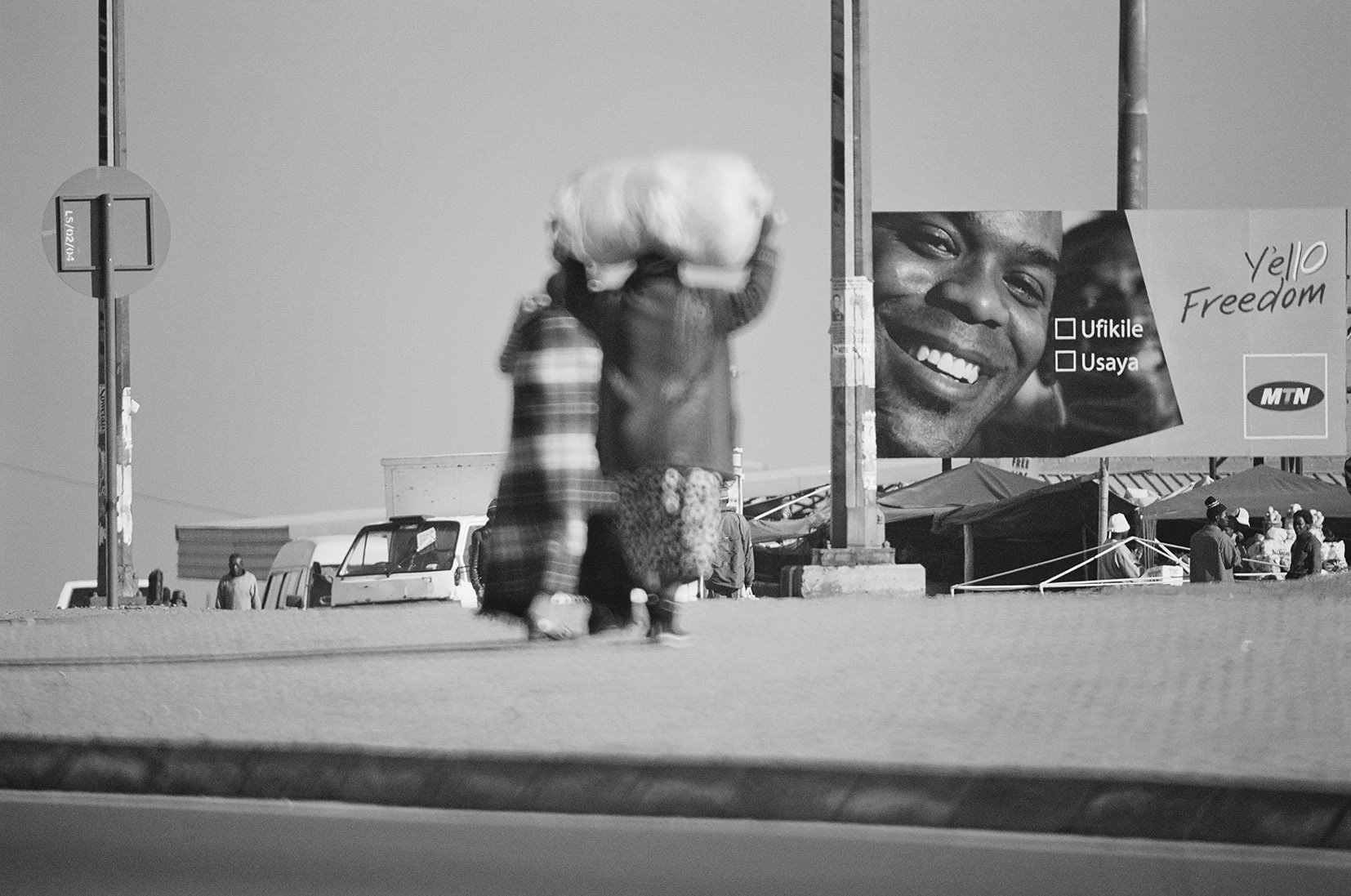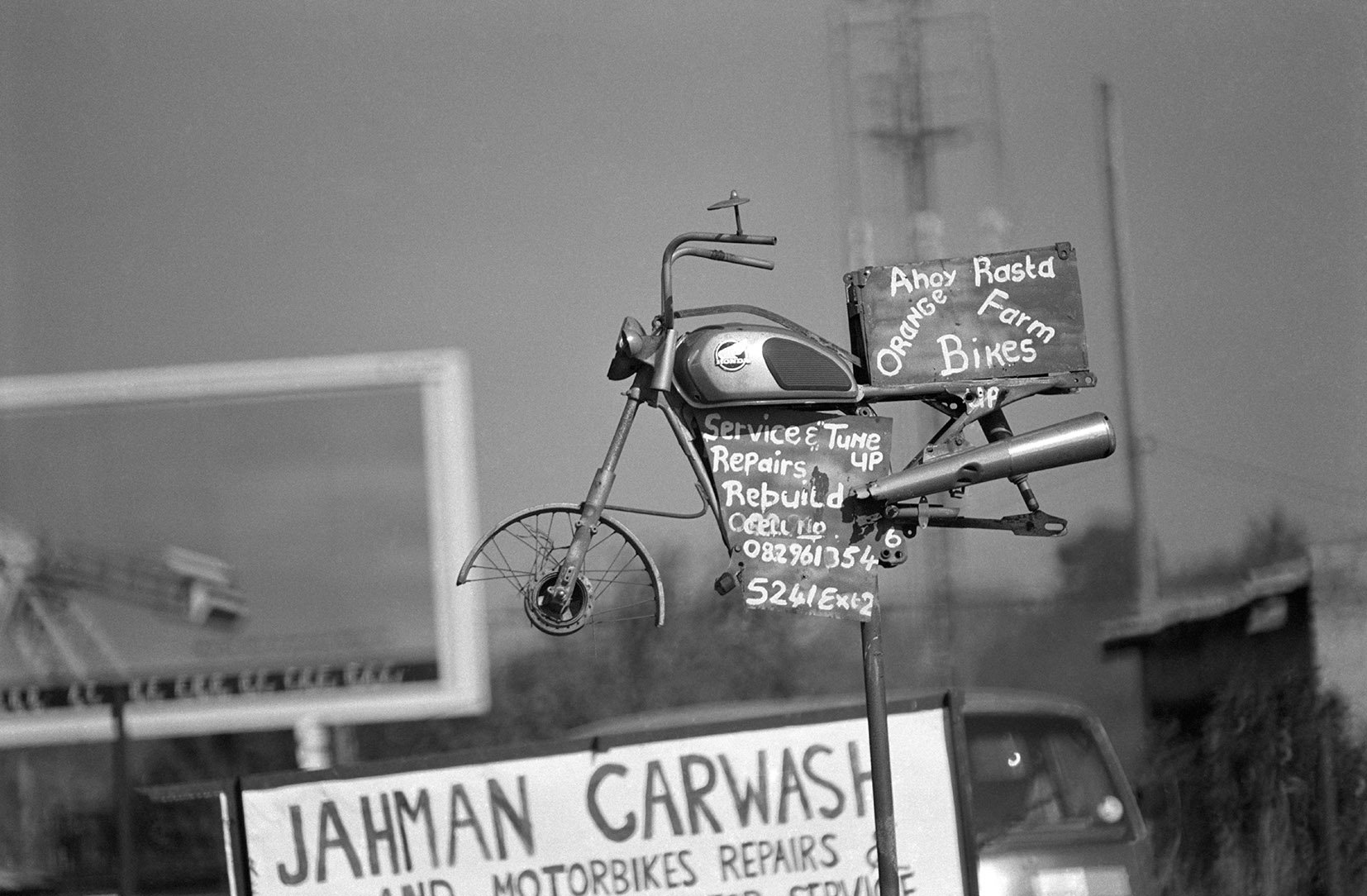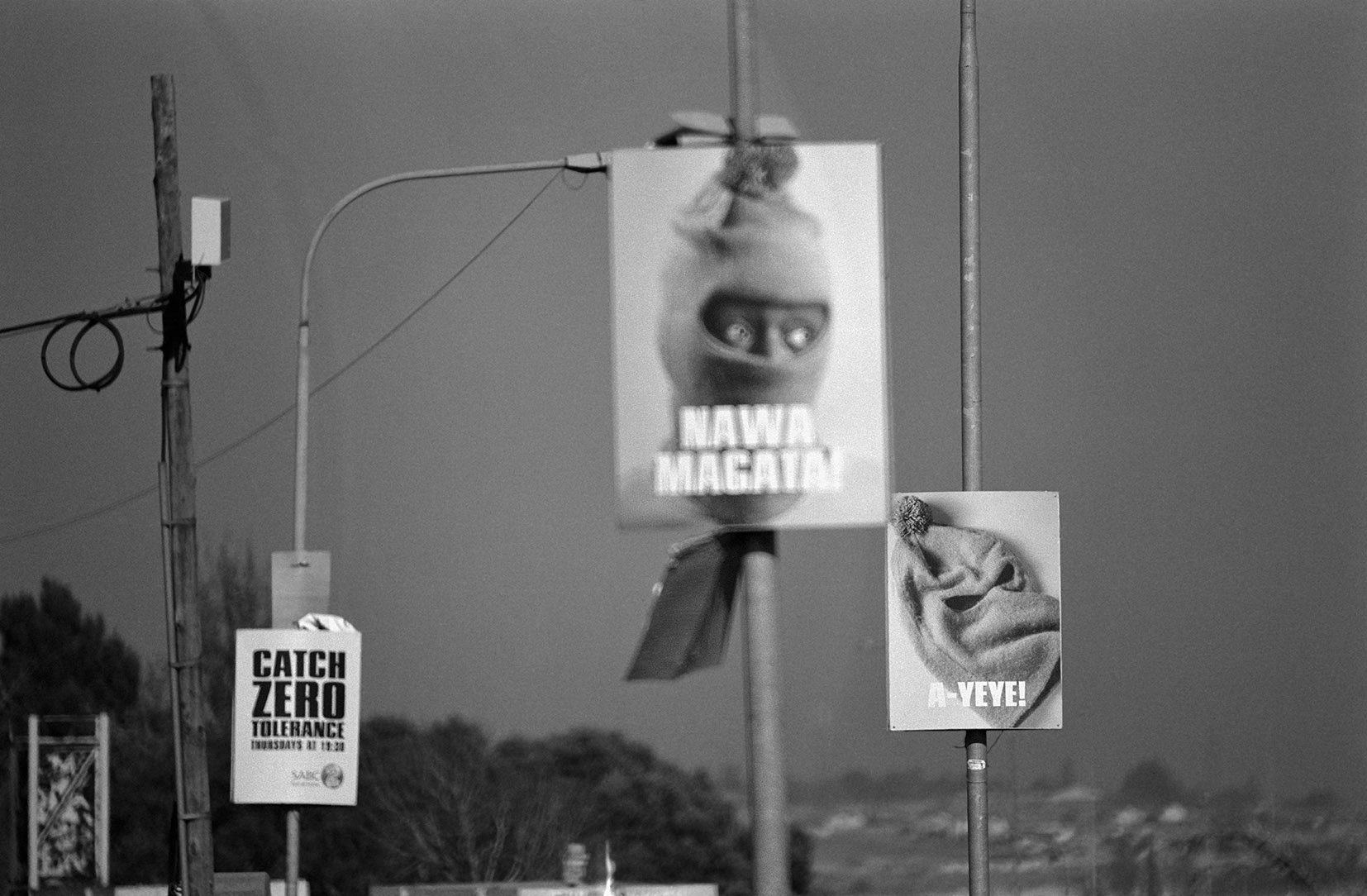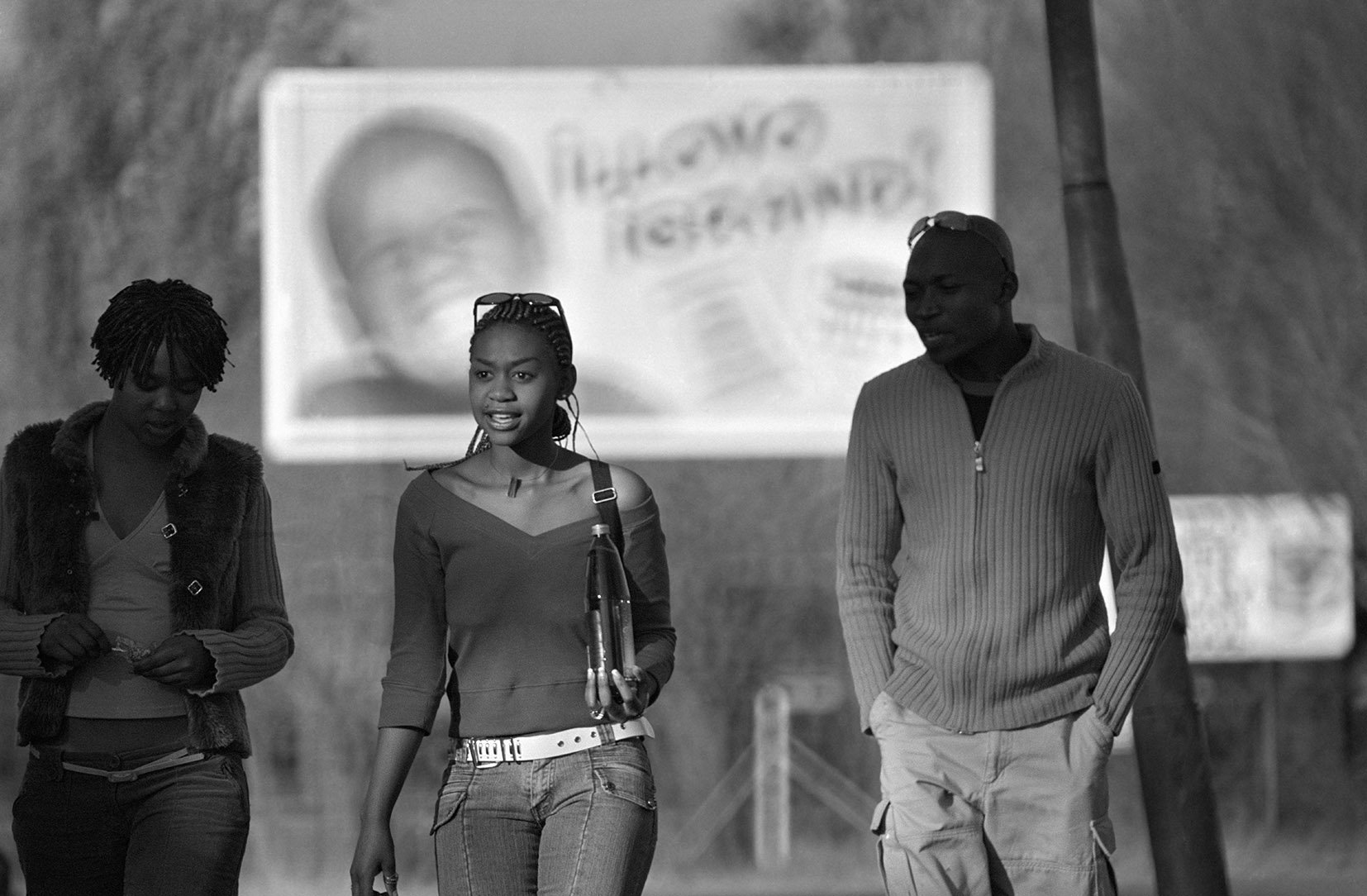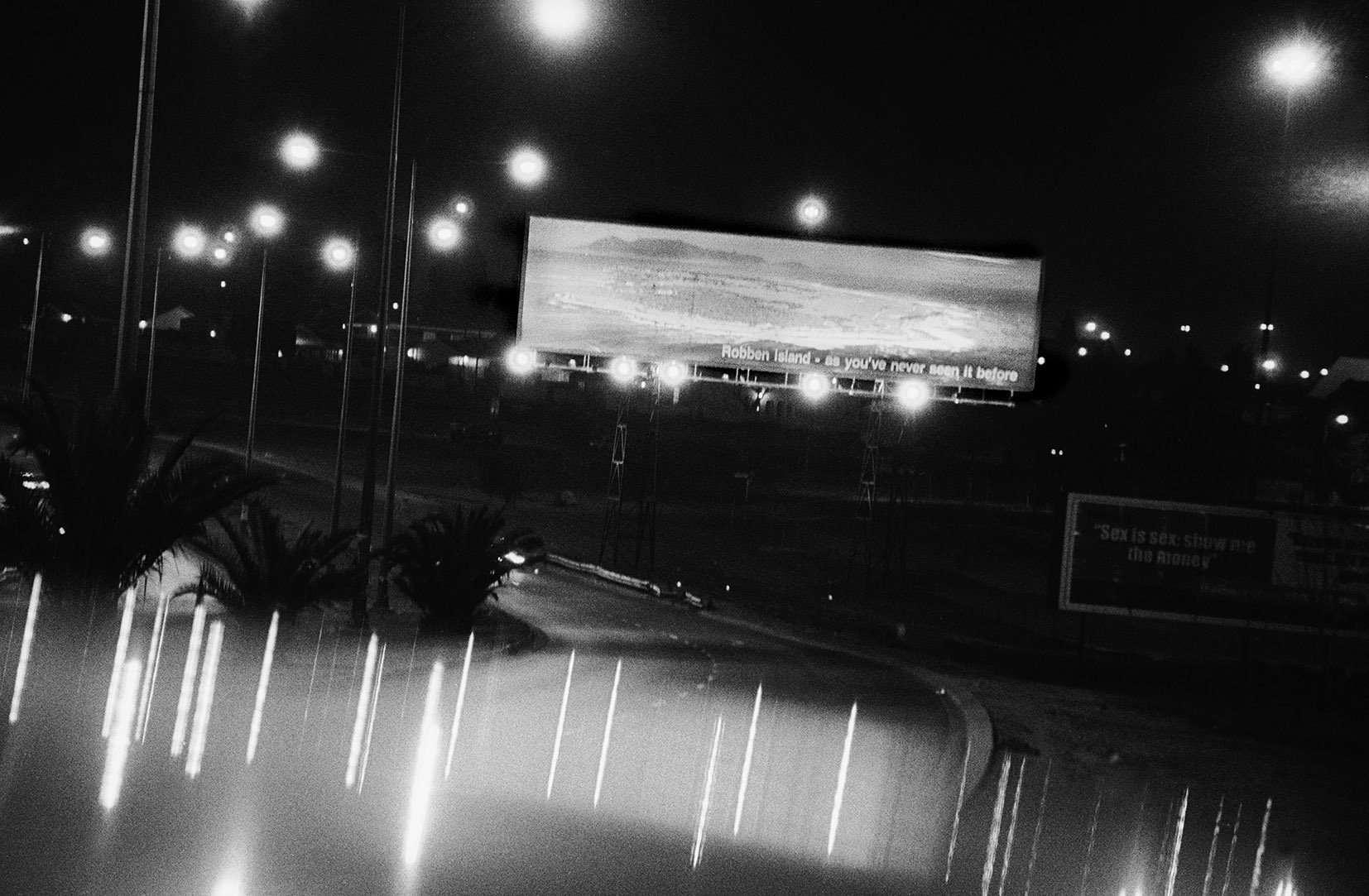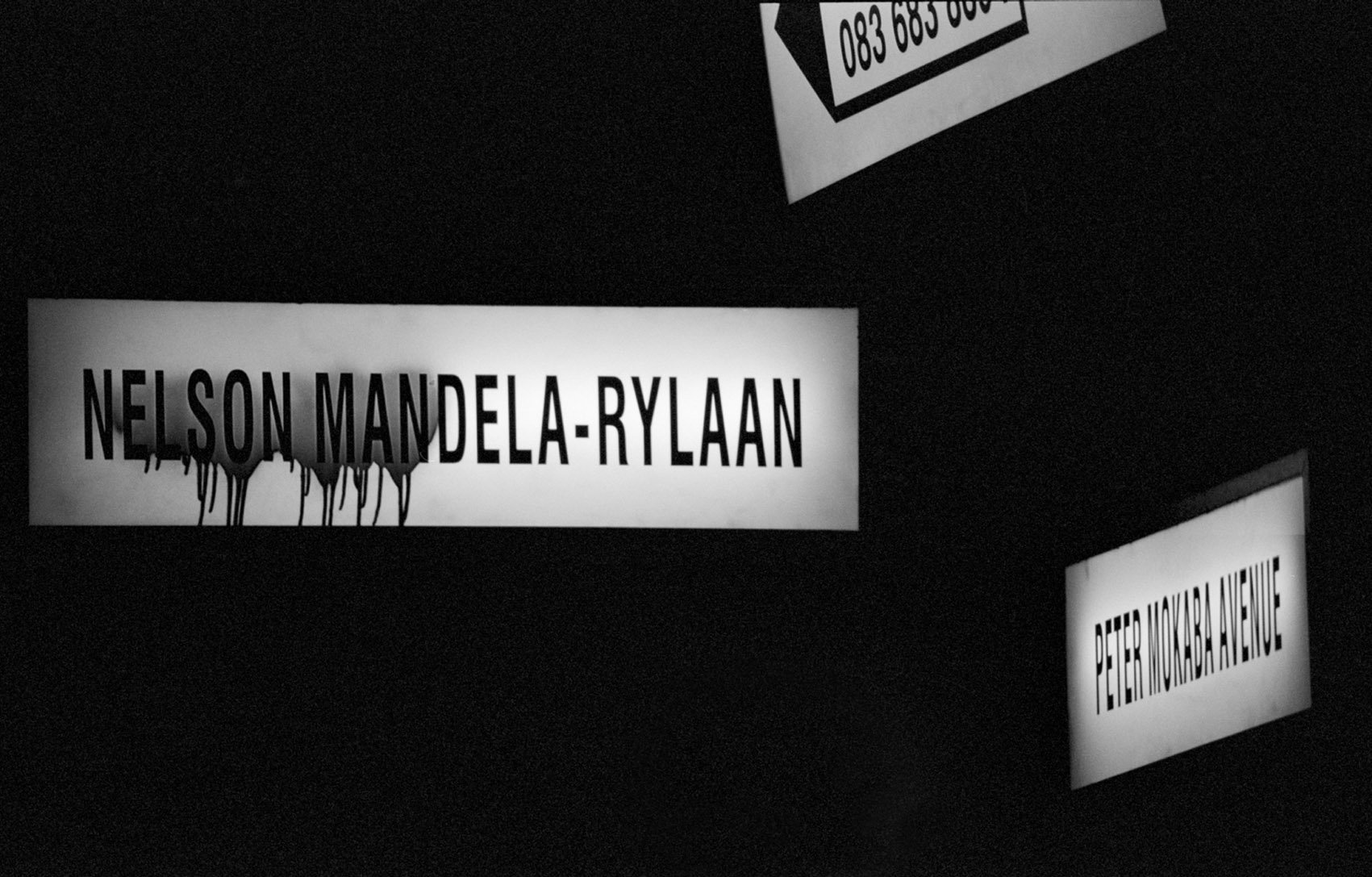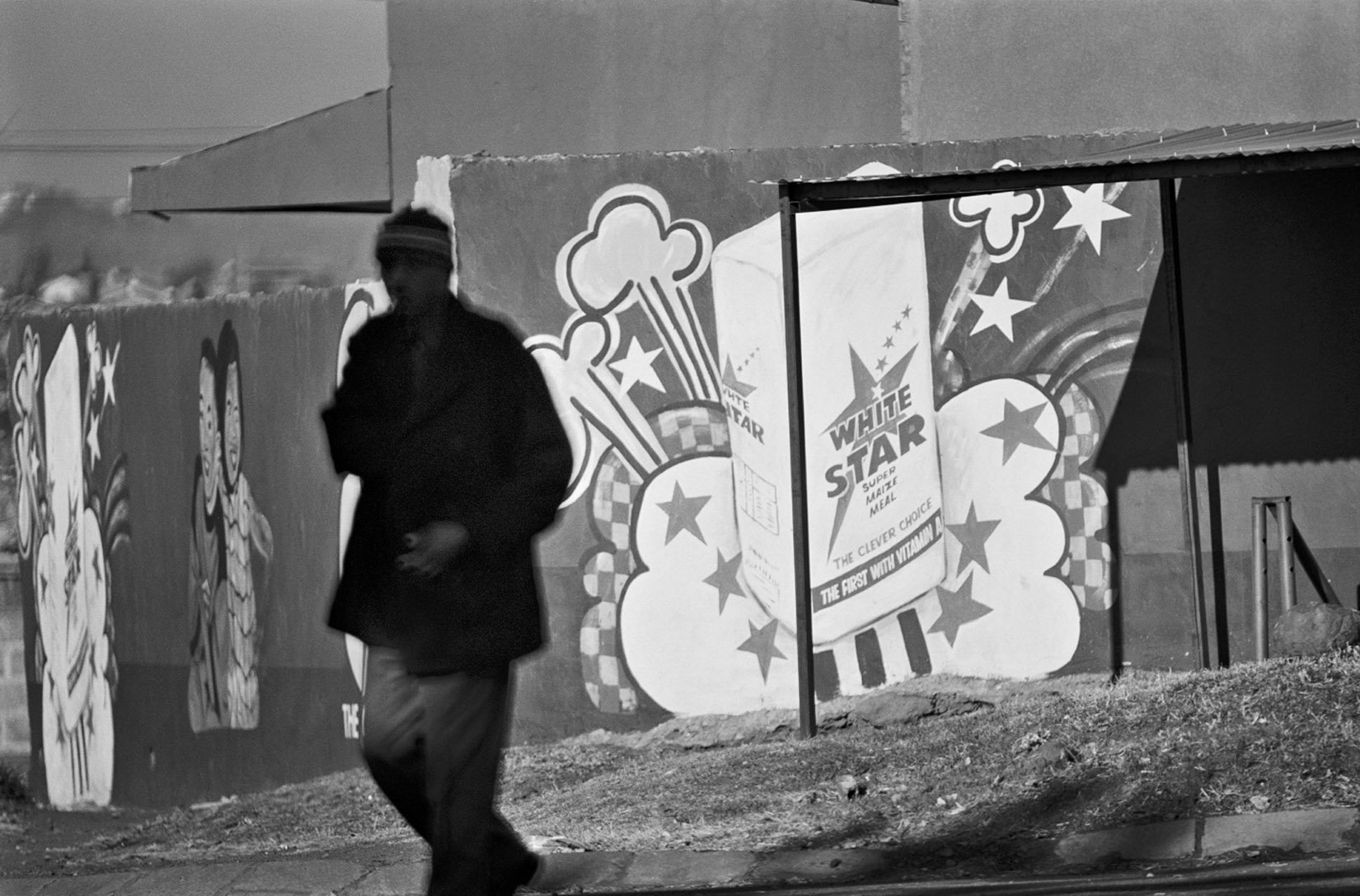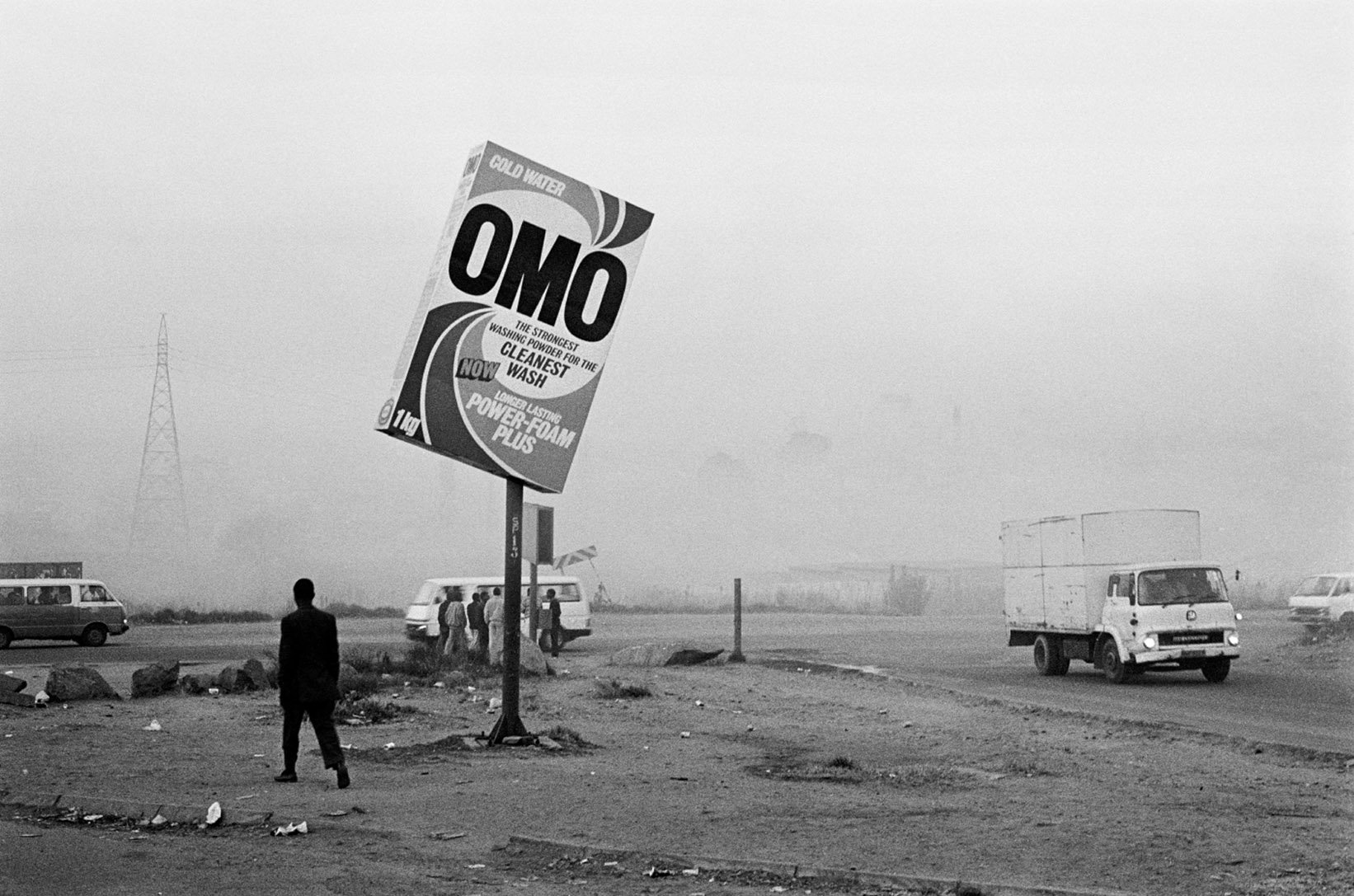Billboards
Township Billboards
(I should preface by saying the work in this show is seminal. It is the beginning of my investigation of the visual history of township billboards.)
Perhaps the title should read Township and Billboard. Billboards have been the medium of communication between the rulers and the denizens of townships since the beginning of the township. The billboard is a fact and feature of township landscape. It is a relic from the times when Africans were subjects of power and the township was a restricted area; subject to laws, municipality by-laws and ordinances regulating people's movements and governing who may or may not enter the township. It is without irony when I say that billboards can be used as reference points when plotting the history and development of the township. Billboards capture and encapsulate ideology, the social, economic and political climate at any given time. They retain their appeal for social engineering.
Apartheid billboards were very austere, and were chiefly concerned with the 'sanitation syndrome'. The economic boom of the sixties introduced American style highway advertising billboards thus rendering Apartheid ideology
anonymous and opaque. In the politically turbulent period of the '70s and '80 the overtly political billboards made their return. This time the struggle was for the hearts and minds of the populace. Recently, with the liberalization of politics the billboard is chiefly used to address the rising consumer culture and the anxiety caused by the HIV/AIDS pandemic. This last is a campaign partly financed by government.
I read somewhere that ads create a sense of participating in the utopia of beauty: Life as it should be. A drive from the city into Soweto will quickly dispel this notion as misguided. Billboards line the freeway on both sides. In the name of freedom of speech one's cultural sensibility is assaulted by textual and visual messages. The trip can hardly be described as boring. Nobody ever complains of the visual pollution. At the high speed of a minibus taxi, the billboards roll by like flipping pages in a book. The retina registers arcane and inane messages about sex and cell-phones, mostly sex and cell-phones. Perhaps this is a coincidence. I wonder.
Santu Mofokeng
